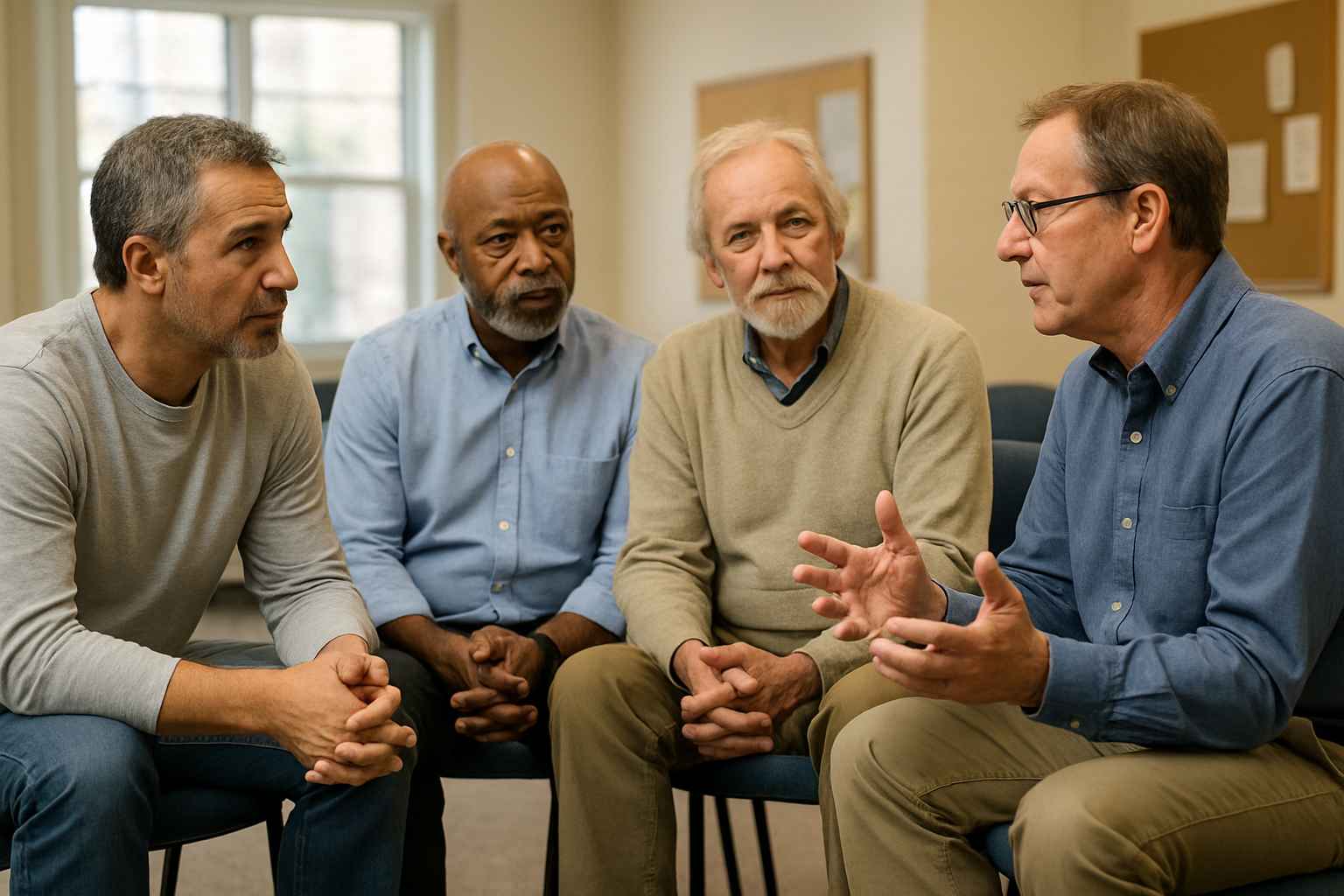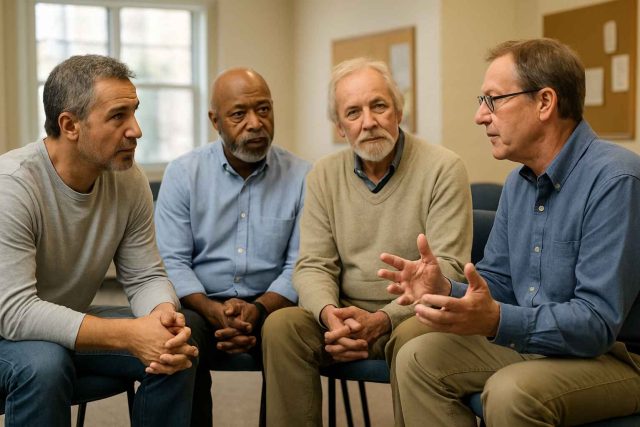
Navigating prostate health can feel overwhelming, especially with the abundance of information—and misinformation—online. That’s why trusted resources like HealingWell Prostate forums and support groups have become a go-to haven for patients and caregivers seeking reliable answers, practical advice, and a sense of community.
Whether you’re dealing with benign prostatic hyperplasia (BPH), prostatitis, or prostate cancer, understanding your options is the first step toward managing your condition with confidence. Much like maintaining a car, prostate health requires regular attention, timely interventions, and informed decisions to ensure everything runs smoothly.
This article offers essential tips, current treatment insights, and supportive tools to help you take charge of your prostate health journey.
Table of Contents
- Understanding Common Prostate Conditions
- Proven Lifestyle Tips for Prostate Health
- Treatment Options: From Medication to Surgery
- Community Support and Digital Tools
- Conclusion and FAQs
Understanding Common Prostate Conditions
The prostate, a walnut-sized gland below the bladder, plays an important role in male reproductive health. Yet, it often becomes a source of concern as men age. HealingWell Prostate discussions frequently focus on three primary conditions: BPH, prostatitis, and prostate cancer.
Benign Prostatic Hyperplasia (BPH) is a non-cancerous enlargement of the prostate that can obstruct urine flow. Symptoms include frequent urination, weak stream, and nocturia (waking at night to urinate). While it’s not life-threatening, it can severely affect quality of life.
Prostatitis involves inflammation of the prostate, sometimes caused by bacterial infections. It can lead to pelvic pain, urinary discomfort, and sexual dysfunction. Acute cases may require antibiotics, while chronic cases often call for more nuanced management.
Prostate Cancer is one of the most common cancers among men, particularly those over age 50. However, it’s often slow-growing and treatable when caught early. Screening tools such as PSA (prostate-specific antigen) tests and digital rectal exams (DREs) help with early detection.
Although these conditions vary, they all require ongoing communication with healthcare professionals. For personalized support, Healthcare.pro connects patients with licensed experts for confidential consultations.
Proven Lifestyle Tips for Prostate Health
While no magic bullet can guarantee perfect prostate health, certain lifestyle habits have shown promise in reducing risk and easing symptoms. HealingWell Prostate forum members often share actionable tips that complement medical care.
1. Prioritize a Balanced Diet
Eating more fruits, vegetables, and healthy fats—like those found in fish, nuts, and olive oil—can reduce inflammation. Lycopene-rich foods like tomatoes have been linked to prostate benefits. Limiting red meat and processed foods may also support better outcomes.
2. Maintain a Healthy Weight
Obesity is associated with an increased risk of aggressive prostate cancer and worsened BPH symptoms. Regular physical activity helps regulate hormones and improve metabolic health.
3. Stay Active
Even light aerobic exercise such as walking or swimming promotes blood circulation and reduces pelvic tension. Kegel exercises, typically associated with women, also benefit men by strengthening the pelvic floor.
4. Limit Alcohol and Caffeine
Both can irritate the bladder and worsen urinary symptoms. Moderation is key, especially for those with BPH or chronic prostatitis.
5. Don’t Ignore Symptoms
It’s easy to dismiss urinary issues as just part of getting older. However, early diagnosis makes treatment more effective. If symptoms persist, talk to a urologist or consult a provider through Healthcare.pro.
Lifestyle changes are not a replacement for medical intervention, but they can significantly enhance treatment effectiveness and overall well-being.
Treatment Options: From Medication to Surgery
Managing prostate health often requires more than lifestyle adjustments. Fortunately, advances in pharmacology and surgery have broadened the range of treatment choices. Members of the HealingWell Prostate forum often explore these options together, sharing experiences with side effects and outcomes.
Medications for BPH include alpha-blockers like Flomax (tamsulosin), which relax the bladder neck muscles, and 5-alpha-reductase inhibitors like Avodart (dutasteride), which shrink the prostate. These can be used alone or in combination.
For chronic prostatitis, antibiotics, alpha-blockers, and anti-inflammatories are commonly prescribed. In some cases, pelvic floor therapy or prostate massage may help alleviate pain and pressure.
Prostate cancer treatments vary based on disease stage. Options include:
- Active surveillance for low-risk cases
- Surgery (prostatectomy) for localized cancer
- Radiation therapy including IMRT and brachytherapy
- Hormone therapy to suppress testosterone in advanced cases
- Targeted therapies such as Xtandi (enzalutamide) and Zytiga (abiraterone)
- Immunotherapy like Provenge (sipuleucel-T) for metastatic cases
Minimally invasive options like UroLift and Rezūm therapy for BPH are gaining popularity for preserving sexual function while improving urine flow.
No treatment is one-size-fits-all. Risks and benefits must be weighed in consultation with a healthcare provider, ideally one experienced in managing the specific condition.
Community Support and Digital Tools
Managing prostate health is more than just dealing with physical symptoms—it’s also an emotional journey. Isolation and anxiety are common, especially after diagnosis. This is where the HealingWell Prostate community truly shines.
The forum provides a safe, anonymous space to ask questions, vent frustrations, and learn from people who’ve been through similar experiences. From post-surgery recovery tips to PSA tracking spreadsheets, user-generated advice is often the most relatable and actionable.
Additionally, mobile apps like MyChart, CareZone, and Prostate Cancer Guide allow patients to track symptoms, medications, and appointments. These tools empower users to play an active role in their care plans.
It’s also helpful to keep a digital or physical health journal. Recording symptoms, questions, and doctor recommendations makes appointments more productive.
Finally, consider mental health support. Stress, depression, and relationship strain are all valid concerns. Counseling, whether online or in person, can help process emotions and build resilience.
When patients are informed and supported, they’re more likely to stick with treatment, ask important questions, and maintain a higher quality of life.
Conclusion and Key Takeaways
Prostate health impacts millions of lives, yet it remains a topic many hesitate to discuss. Resources like HealingWell Prostate provide the tools, information, and human connection necessary to navigate this complex journey.
Whether you’re dealing with a recent diagnosis, evaluating treatment options, or simply staying proactive, the path forward is clearer with the right knowledge and support. Focus on lifestyle, ask the right questions, and never underestimate the value of community.
FAQs
What are the first signs of prostate issues?
Frequent urination, weak stream, difficulty starting or stopping urine flow, and nocturia are common early signs.
Is BPH the same as prostate cancer?
No. BPH is non-cancerous, though symptoms may be similar. Only proper screening can determine the cause.
Are there natural ways to improve prostate health?
Yes. Diet, exercise, stress management, and supplements like saw palmetto may help, but they should complement—not replace—medical care.
How often should I get my prostate checked?
Screening recommendations vary, but most men should begin discussions with their doctor around age 50—or earlier if high-risk.
Where can I find trusted support from others with prostate issues?
The HealingWell Prostate forum is a respected, patient-centered community offering shared knowledge and encouragement.
Disclaimer:
This content is not medical advice. For any health issues, always consult a healthcare professional. In an emergency, call 911 or your local emergency services.




